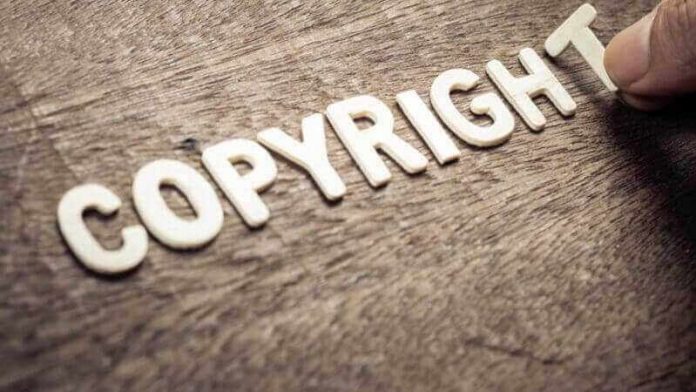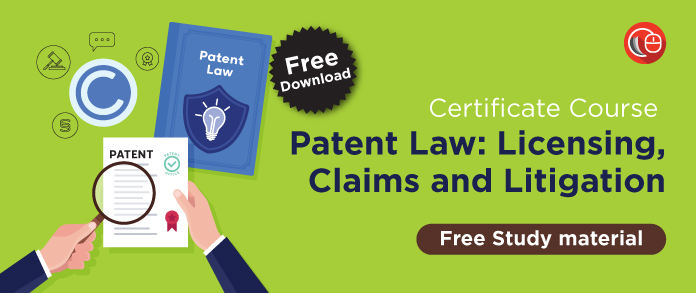This article has been written by Diya Sagir V M pursuing Diploma in Intellectual Property, Media and Entertainment Laws.
This article has been published by Sneha Mahawar.
Table of Contents
Introduction
Nobody can deny that the Indian music industry is one of the most culturally rich and diverse in the world. Musicians have been able to produce top quality songs through various means for a long time. As consumers or listeners, we always enjoy the music but seldom know the hardships and difficulties that the musicians go through to get to where they are. From the composition stage to production and distribution, they go through a lot of hurdles.
In this article, we will look at the different kinds of issues musicians have to face within the music industry, how their rights are being infringed, what can be done to remedy these problems, and much more.
Who owns music copyrights
When you hear the word ‘music’, what comes to mind? Who do you think is the owner of a song or a music recording? Who are the people involved in the whole process, and what rights do they possess? Let’s take a look at it below –
Lyricists and songwriters
These people form the backbone of any type of music. Lyricists or songwriters are the ones who provide the written matter or wording for a song. The lyrics of a song are considered literary works. Therefore, they have literary rights to it.
Composers
Music composers are the ones who provide the music that turns the words into a song. This can be considered an artistic work. Hence, they also possess copyright.
Singers
These people bring life to the work mentioned above. Without them, the song would just remain words and music separately. Singers possess performers rights or moral rights, as elaborated in Section 38 of the Copyright Act.
Producers and Record Labels
Without them, these works of art would not be able to be put out into the world for us to listen to. Record labels and producers help the musicians to get their work out into the world. Hence, rights over the whole song or the Master copyright belongs to them.
Kinds of rights possessed
Now that we have understood the people involved in the music industry, we can now take a look at the kinds of rights present and who all possess them.
Right to reproduce
According to Section 14(a) of the Copyright Act, the author or creator of a musical work has the sole right to reproduce their artistic work in any other form that they see fit.
Mechanical rights
These, too, are the rights available to the author or creator to reproduce their work in any other mode or medium.
Synchronisation rights
If the author or creator would like to sync their work to any other platform in a different format (like a video), they can do so using this right.
Derivative rights
If the author or creator would like to create new works from their already existing ones (like remixes) by reproducing them differently, it is called a derivative right.
Right to display and communicate the work
The author has the right to display and communicate their musical work.
Adaptation rights
It is the right vested in the author or creator of a musical work, to adapt their work into different languages (translation).
Performer’s rights
According to Section 38 of the Copyright Act, the singer or performer of a song has certain rights as well. They are allowed to make a recording of their work and reproduce it. They can also broadcast their work to the public. This right exists for these singers for 50 years from the year of song publication.
Moral rights
The singer or performer also has moral rights, which empower them to identify themselves as performers and also give them the right to claim damages if someone alters their work in such a way that it causes prejudice to them. According to Section 57 of the Copyright Act, these rights would still be vested in them (the right to paternity) even if they assigned their rights to others (the right to restrain).
Literary rights
These are the rights available to the lyricist or songwriter over the written matter of the song (lyrics). Lyrics are considered a literary matter and are protected under the Copyright Act.
Master Copyright
The rights to the song as a whole (recording) are vested in the producers or the record labels because they are the ones who produce the song into something that is tangible.
Main issues faced by the musicians
One of the biggest problems that musicians have been facing for a long time is that they are never paid enough for their hard work. They always have to rely on record labels or producers to get their work out there for people to listen to. Even though the times have changed and, with digital advancements, they can use internet platforms to showcase their work, the traditional method is still the main channel they use. They sign unconscionable contracts with these record labels and producers and take advantage of these musicians, especially new artists who have just stepped into this career. The labels exercise unparalleled power over them through these contracts, and these new artists do not have the power to negotiate with them.
Most of the time, they are given a lump sum payment at the beginning, and they have no choice but to agree to it. And after that, there are no other additional financial benefits. As artists, even though they are bound to receive royalties for their work, the labels word their contracts in such a way that it benefits only them (financially) and not the musicians. According to the terms of the contract, all further rights would also be vested in the labels, so they would be able to do whatever they wanted with the music without consulting the artist. All the monetary gains go into the pockets of the record labels.
Being the creative souls that they are, musicians or any artist thrive and produce their best work when they are let free. The feeling of being entrapped would only hinder their whole thought process. Thus, not receiving profit or royalties for their work discourages them.
Another problem that musicians face, though outside the music industry, is digital piracy. Because they lack knowledge and awareness, listeners do not know the consequences of illegally downloading copyrighted material online. Therefore, this becomes another method by which musicians are exploited. All in all, musicians cannot afford to fight against these infringers for their rights, especially when starting out.
2012 Amendment of Copyright Act, 1957
In this new era of technological advancements, there was an impending need to make a few changes to the Copyright Act. The Act needed to conform with WIPO (World Intellectual Property Organisation) norms and also with “internet treaties” like the WIPO Copyright Treaty (WCT) and the WIPO Performances and Phonograms Treaty (WPPT).
So many significant changes have been brought out since the 2012 amendment of the Copyright Act, 1957. Wider protection is being given to musicians because they have been suffering at the hands of producers and record labels for a long time. They are being given better rights to ownership and control of their own work and promoted to a legally higher position. Even though other changes have also been brought about through this amendment, we will focus on the author and owner-friendly rights regarding assignment and licences.
Section 18
Three new provisos have been introduced to Section 18 through the amendment. It states that the assignee can only use those modes or means that existed when the assignment was first made while exercising his or her rights. He or she cannot extend it to future modes. The second and third provisos restrict an author from waiving his or her rights to receive royalties. The most that can be done is to share it on a 50/50 basis with the assignee. Any contract made contrary to this provision will be considered void. There are some exceptions to this. A few instances in which more than 50% of the rights can be waived are when:
- It is given to legal heirs of the author
- Communication is made to the public in a cinema hall
- A copyright society is entrusted with collecting and distributing royalties on the author’s behalf
Section 19
Section 19 deals with modes of assignment. Three subsections were added to this Section, namely, (8), (9) and (10). Subsection (8) states that the author belonging to a particular Copyright Society cannot assign his or her rights to a third party in contravention of the terms and conditions of the agreement they have with the Copyright Society. If done so, it would be considered void. This is done to protect the Copyright Societies and have them work efficiently. Copyright Societies become the only channel through which the authors can receive their share of royalties. If the author wants to assign his or her rights to a third party, they would have to abandon their membership in the Copyright Society.
Subsections (9) and (10) state that if the author assigns or licences his or her copyright in a cinematographic film or sound recording, it will not make any difference in his or her right to royalties unless it is done as a communication to the public in a cinema hall.
Copyright Society
It is difficult for an individual author or owner of a musical work to keep track of all the different ways their work is being used. It is also tough to collect royalties or profits for their work from different sources all the time. That is where the role of Copyright Societies becomes crucial. Copyright Societies are given a lot of powers and functions to manage and protect their members’ copyright matters. They help to keep a better eye on who is using their copyright. They also collect royalties from different streams and bring them to the author or owner. Section 33 of the Copyright Act, 1957, deals with the Copyright Society and its formation. It is formed and run by the authors and owners themselves, and a minimum of seven members is required.
Section 33 (3A) was added to the Copyright Act, 1957, as part of the 2012 amendment, and it required the existing copyright societies to re-register themselves within one year if they wanted to keep granting copyright licences.
Section 14
As per the 2012 amendment, now the right to reproduce also includes the “right to store” the work in any mode by electronic means. This has become an important topic due to the digital advancements present in today’s world. The right concerning the storage of work becomes even more relevant in the present state of digital technology, which involves transmitting digitised works over the internet, resulting in the creation of transient copies at several different locations, including on the user’s computer.
Section 17
A proviso has been added to this section by the amendment that states that nothing should affect the rights of the author. It protects them from clauses (b) and (c) of Section 17.
The EIMPA Judgement
The facts of the case, Indian Performing Rights Society v. Eastern Indian Motion Pictures Association (IPRS v. EIMPA), are as follows. The IPRS is a society that licences the copyright of its members’ musical works. The IPRS claimed that they were the assignees of the authors who created the music and that the EIMPA has to pay a tariff to them because the EIMPA is using the copyright of the members of their society in cinematographic films and radio stations. It was a long-drawn case in which the Honourable Supreme Court finally held in favor of EIMPA, or rather, the producers of the cinematographic films, by relying on Sections 17(b) and (c). The producers were considered owners because these musicians were hired on a ‘contract of service’ basis.
It is hoped that the 2012 amendment will help to overturn this decision in the upcoming judgments because of the alterations made in Section 17.
Section 38
Section 38A has been added through an amendment, giving royalty rights to even performers when their work is being used commercially.
Important case laws
In the case of Indian Performing Rights Society v. Aditya Pandey & Ors., it was held that the author whose literary and musical works have been incorporated in sound recordings is entitled to receive an equal share of the royalties that arise from using their work.
In the case of Amar Nath Sehgal vs. Union of India, it was rightly held that the moral rights of a work are vested in the author itself, and he or she has the right to decide how to protect it even if rights have been assigned to someone else.
In Gramophone Co. v. Super Cassettes and Gramophone Co. v. Mars, opposite judgments were given. Section 52(1)(j) of the Copyright Act, 1957, states that a licence should be obtained from the author if someone wants to use their work and make any alterations or modifications to it. In the former case, it was held that permission had to be obtained from the owner of a musical work before making changes to it. But in the latter case, it was held and stated that, as far as the provisions of Section 52(1)(j) were complied with, no permissions needed to be taken.
Conclusion
Even though many changes have been made because of the 2012 Amendment, there is still a long way to go. An environment should be created where both musicians and labels have equal bargaining power, or rather, increase the bargaining power of musicians. A 50/50 approach should be taken where both parties can share the revenue.
Even though it is not mandatory, it is always advised to register a copyright because it comes with a lot of benefits. Rights are assured for a registered copyright and the copyright owner will be able to sue an infringer and resort to civil or criminal remedies
One of the latest developments in this area is the ISRA’s (Indian Singers Rights Association) agreement with the IMI (Indian Music Industry). This agreement is mainly to fight against digital piracy and covers all record labels, singers, and musicians in India. The accord is set to benefit all stakeholders across the Indian music industry and help the music market grow. It is expected to have a positive impact on the industry.
Safeguarding the rights of musicians within the Indian music industry is tough work to get done because almost every time, the producers or record labels are favoured over them. All we can do is be hopeful for the future, make sure that the musicians are aware of their rights according to the latest changes in the law, and also aspire that the decisions taken will be favourable to them, at least from now on.
References
- https://www.yourlegalcareercoach.com/music-law-framework-in-india-an-overview/#_ftn3
- https://www.kashishworld.com/blog/how-is-copyright-protection-applicable-to-the-indian-music-industry/
- https://blog.ipleaders.in/creating-value-for-music-copyright-in-music-industry/
- https://pure.jgu.edu.in/id/eprint/2353/1/Singh%202013.pdf
- https://talwaradvocates.com/impact-copyright-amendment-act-2012-right-royalty-performers/
- http://www.iiprd.com/copyright-societies-and-the-copyright-amendment-act-2012/?utm_source=mondaq&utm_medium=syndication&utm_term=Intellectual-Property&utm_content=articleoriginal&utm_campaign=article
- https://www.bananaip.com/ip-news-center/indian-performing-rights-soceity-v/
- https://www.musicplus.in/imi-isra-historic-pact-music-industry-stakeholders/
Students of Lawsikho courses regularly produce writing assignments and work on practical exercises as a part of their coursework and develop themselves in real-life practical skills.
LawSikho has created a telegram group for exchanging legal knowledge, referrals, and various opportunities. You can click on this link and join:
Follow us on Instagram and subscribe to our YouTube channel for more amazing legal content.
 Serato DJ Crack 2025Serato DJ PRO Crack
Serato DJ Crack 2025Serato DJ PRO Crack













 Allow notifications
Allow notifications


